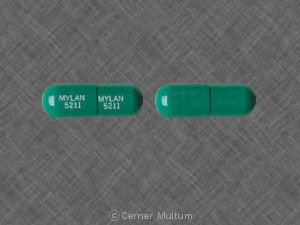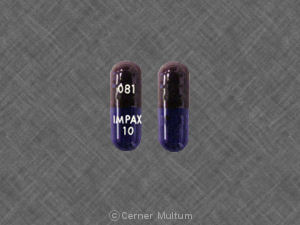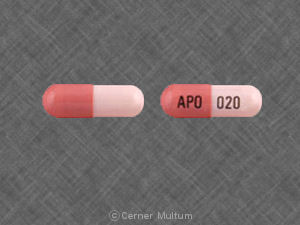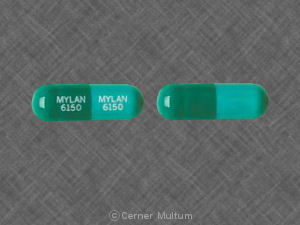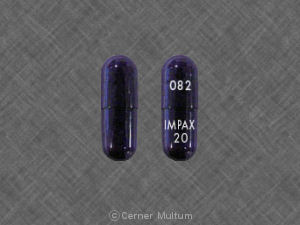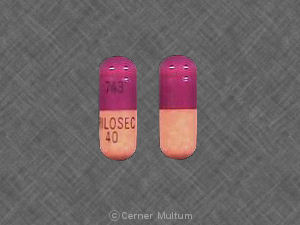What is the most important information I should know about omeprazole?
Follow all directions on your medicine label and package. Tell each of your healthcare providers about all your medical conditions, allergies, and all medicines you use.
What is omeprazole?
Omeprazole is a proton pump inhibitor that decreases the amount of acid produced in the stomach.
Omeprazole is used to treat symptoms of gastroesophageal reflux disease (GERD) and other conditions caused by excess stomach acid. Omeprazole is also used to promote healing of erosive esophagitis (damage to your esophagus caused by stomach acid).
Omeprazole may also be given together with antibiotics to treat gastric ulcer caused by infection with helicobacter pylori (H. pylori).
Omeprazole is not for immediate relief of heartburn symptoms.
Omeprazole may also be used for purposes not listed in this medication guide.
What should I discuss with my healthcare provider before taking omeprazole?
Heartburn is often confused with the first symptoms of a heart attack. Seek emergency medical attention if you have chest pain or heavy feeling, pain spreading to the arm or shoulder, nausea, sweating, and a general ill feeling.
You should not use this medicine if you are allergic to omeprazole or to any benzimidazole medicine such as albendazole or mebendazole.
Ask a doctor or pharmacist if it is safe for you to use omeprazole if you have other medical conditions, especially:
- liver disease;
- low levels of magnesium in your blood; or
- osteoporosis or low bone mineral density (osteopenia).
Do not use over-the-counter omeprazole (Prilosec OTC) without the advice of a doctor if you have:
- trouble or pain with swallowing;
- bloody or black stools, vomit that looks like blood or coffee grounds;
- heartburn that has lasted for over 3 months;
- frequent chest pain, heartburn with wheezing;
- unexplained weight loss; or
- nausea or vomiting, stomach pain.
Taking a proton pump inhibitor such as omeprazole may increase your risk of bone fracture in the hip, wrist, or spine. This effect has occurred mostly in people who have taken the medication long term or at high doses, and in those who are age 50 and older. It is not clear whether omeprazole is the actual cause of an increased risk of fracture.
Some conditions are treated with a combination of omeprazole and antibiotics. Use all medications as directed by your doctor. Read the medication guide or patient instructions provided with each medication. Do not change your doses or medication schedule without your doctor's advice.
It is not known whether this medicine will harm an unborn baby. Tell your doctor if you are pregnant or plan to become pregnant.
Omeprazole can pass into breast milk and may harm a nursing baby. Do not use this medicine without a doctor's advice if you are breast-feeding.
Do not give omeprazole to a child younger than 1 year old without the advice of a doctor.
How should I take omeprazole?
Omeprazole is usually taken before eating (at least 1 hour before a meal). Follow all directions on your prescription label. Do not take this medicine in larger or smaller amounts or for longer than recommended.
Prilosec OTC (over-the-counter) should be taken only once every 24 hours for 14 days. Take the medicine in the morning before you eat breakfast. It may take up to 4 days for full effect. Do not take more than one tablet every 24 hours.
Allow at least 4 months to pass before you start another 14-day treatment with Prilosec OTC. Call your doctor if you have additional symptoms and need treatment before the 4 months has passed.
Do not crush, chew, or break an enteric coated pill, or a Prilosec OTC tablet. Swallow the pill whole.
You may open the delayed-release capsule and sprinkle the medicine into a spoonful of applesauce to make swallowing easier. Swallow the mixture right away without chewing. Do not save for later use.
Dissolve the powder in a small amount of water. Use 1 teaspoon of water for the 2.5-mg packet, or 1 Tablespoon of water for the 10-mg packet. Let the mixture stand for 2 or 3 minutes, then stir and drink right away. To make sure you get the entire dose, add a little more water to the same glass, swirl gently and drink right away.
This mixture can also be given through a nasogastric (NG) feeding tube using only a catheter-tipped syringe. Shake the syringe well, then attach it to the NG tube and push the plunger down to empty the syringe into the tube. Refill the syringe with water and flush the tube to wash the contents down.
Use this medicine for the full prescribed length of time. Your symptoms may improve before your condition is completely cleared.
If you use omeprazole for longer than 3 years, you could develop a vitamin B-12 deficiency. Talk to your doctor about how to manage this condition if you develop it.
Call your doctor if your symptoms do not improve, or if they get worse while using omeprazole.
Some conditions are treated with a combination of omeprazole and antibiotics. Use all medications as directed by your doctor. Read the medication guide or patient instructions provided with each medication. Do not change your doses or medication schedule without your doctor's advice.
This medicine can cause unusual results with certain medical tests, and you may need to stop using the medicine for a short time before a test. Tell any doctor who treats you that you are using omeprazole.
Store at room temperature away from moisture and heat.
What happens if I miss a dose?
Take the missed dose as soon as you remember. Skip the missed dose if it is almost time for your next scheduled dose. Do not take extra medicine to make up the missed dose.
What happens if I overdose?
Seek emergency medical attention or call the Poison Help line at 1-800-222-1222.
What should I avoid while taking omeprazole?
This medicine can cause diarrhea, which may be a sign of a new infection. If you have diarrhea that is watery or bloody, call your doctor. Do not use anti-diarrhea medicine unless your doctor tells you to.
What are the possible side effects of omeprazole?
Get emergency medical help if you have signs of an allergic reaction: hives; difficulty breathing; swelling of your face, lips, tongue, or throat.
Call your doctor at once if you have:
- severe stomach pain, diarrhea that is watery or bloody;
- seizure (convulsions);
-
kidney problems --urinating more or less than usual, blood in your urine, swelling, rapid weight gain; or
-
symptoms of low magnesium --dizziness, confusion; fast or uneven heart rate; tremors (shaking) or jerking muscle movements; feeling jittery; muscle cramps, muscle spasms in your hands and feet; cough or choking feeling.
Common side effects may include:
- stomach pain, gas;
- nausea, vomiting, diarrhea; or
- headache.
This is not a complete list of side effects and others may occur. Call your doctor for medical advice about side effects. You may report side effects to FDA at 1-800-FDA-1088.
What other drugs will affect omeprazole?
Ask a doctor or pharmacist if it is safe for you to take omeprazole if you are also using any of the following drugs:
- cilostazol;
- clopidogrel;
- diazepam (Valium);
- digoxin;
- disulfiram (Antabuse);
- erlotinib;
- iron-containing medicines (ferrous fumarate, ferrous gluconate, ferrous sulfate, and others);
- methotrexate;
- mycophenolate mofetil;
- phenytoin;
- St. John's wort;
- tacrolimus;
- warfarin (Coumadin, Jantoven);
-
an antibiotic --ampicillin, amoxicillin, clarithromycin, rifampin;
-
antifungal medicine --ketoconazole, voriconazole; or
-
HIV or AIDS medication --atazanavir, nelfinavir, saquinavir.
This list is not complete. Other drugs may interact with omeprazole, including prescription and over-the-counter medicines, vitamins, and herbal products. Not all possible interactions are listed in this medication guide.
Where can I get more information?
Your pharmacist can provide more information about omeprazole.
Remember, keep this and all other medicines out of the reach of children, never share your medicines with others, and use this medication only for the indication prescribed.
Every effort has been made to ensure that the information provided by Cerner Multum, Inc. ('Multum') is accurate, up-to-date, and complete, but no guarantee is made to that effect. Drug information contained herein may be time sensitive. Multum information has been compiled for use by healthcare practitioners and consumers in the United States and therefore Multum does not warrant that uses outside of the United States are appropriate, unless specifically indicated otherwise. Multum's drug information does not endorse drugs, diagnose patients or recommend therapy. Multum's drug information is an informational resource designed to assist licensed healthcare practitioners in caring for their patients and/or to serve consumers viewing this service as a supplement to, and not a substitute for, the expertise, skill, knowledge and judgment of healthcare practitioners. The absence of a warning for a given drug or drug combination in no way should be construed to indicate that the drug or drug combination is safe, effective or appropriate for any given patient. Multum does not assume any responsibility for any aspect of healthcare administered with the aid of information Multum provides. The information contained herein is not intended to cover all possible uses, directions, precautions, warnings, drug interactions, allergic reactions, or adverse effects. If you have questions about the drugs you are taking, check with your doctor, nurse or pharmacist.
Copyright 1996-2018 Cerner Multum, Inc. Version: 17.01. Revision date: 2/2/2015.

